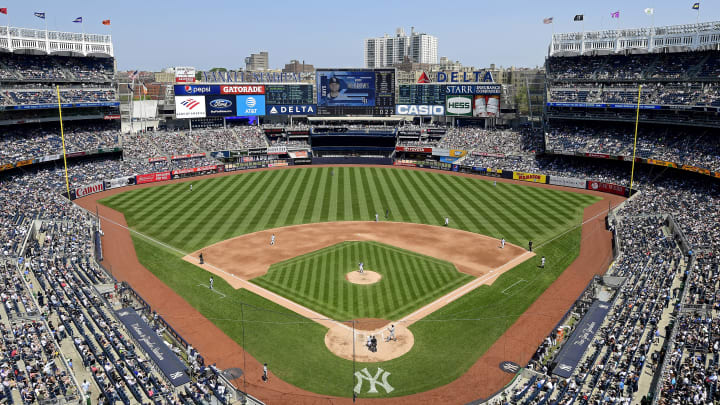Here's What a Legitimate Season Proposal From MLB Owners to Players Should Look Like
By Jerry Trotta

The fate of the 2020 MLB season remains up for debate, as owners and players are still tremendously entrenched in a financial dispute. The league's latest proposal, which was sent to the players' union on Monday (presumably, after most of them first discovered it on Twitter), reportedly includes 75% prorated salaries and a 76-game campaign, though a percentage of the payments is contingent on postseason play.
While that was a step in the right direction in that it (somewhat) confirmed that the owners want to see baseball played this year, it has no chance of being ratified. Fans of the game are surely worn down by these "negotiations," so we've taken the initiative to brainstorm what a reasonable blueprint from owners should look like.
ESPN has obtained a copy of MLB’s proposal today to the players. Here are the pertinent details:
— Jeff Passan (@JeffPassan) June 8, 2020
- 76-game season
- $1,431,716,000 in potential compensation (75% of the full prorated salary of $1,909,436 over 76 games)
- Up to 8 playoff teams per league (at MLB’s discretion)
It was previously reported that the owners, knowing they would lose money in the process, are focused on a 48-game season. Players were seeking a 114-game campaign with full pay, so meeting somewhere in the middle would be in the owners best interest. Though the perfect July 4 start date is no longer feasible, something like 82 games could still work.
Now, we get to the financial side of things. In March, both sides reached an agreement that would reportedly prorate players' salaries based on the number of games played. It's clear now the players aren't going to take anything less than a 100% prorated salary, and it's equally obvious owners are going to keep claiming they can't afford such things (hence, why proposals keep circling back to the same dollar value spread over different numbers of games).
However, to lessen the burden on the billionaire owners -- as ridiculous as that sounds -- 25% could be deferred over the next few year to higher-income seasons, presumably when fans are allowed back inside stadiums and revenue becomes stable again.
Salary breakdown to get to the $1.431 billion number:
— Jeff Passan (@JeffPassan) June 8, 2020
- 50% of prorated salaries over 76 games: $954,718,000
- Payment to players if postseason happens: $393,000,000
- Bonus pool for postseason teams to split up: $50,000,000
- Forgiveness on $170M advance: $33,998,000
Does this proposal see the owners making a bigger sacrifice than they seem willing to offer? Absolutely, but this is far from a total win for the players, who still hold all of the leverage in negotiations. If both sides truly want baseball to be played in 2020 in legitimizing fashion (averting the 50-game nuclear option), this is the way forward.